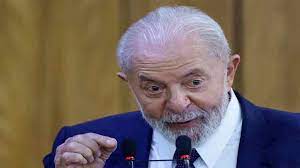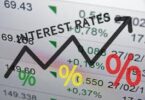Monitoring Desk
SAO PAULO/LAHORE: Brazil President Luiz Inacio Lula da Silva said on Monday that there is no explanation for keeping the country’s benchmark interest rate at the current 11.25 per cent level apart from the “stubbornness” of central bank president Roberto Campos Neto, Reuters reported.
The latest statement again shows the serious difference of opinion between the political leaders and the central banks around the world – especially in developing countries which need and want more economic growth – over how and when to slash the interest rates which were raised to deal with the historic high inflation.
Meanwhile, Lula’s stance is understandable for many in Pakistan too, as the businesses have been clamouring for rate cuts as the borrowing costs currently stand at 22pc – an all-time high. Some political leaders – especially Nawaz Sharif and Ishaq Dar – have similar views on the subject.
Since August, Reuters says, Brazil’s central bank has cut the country’s benchmark Selic rate by 250 basis points, after it held the rate for about a year at its highest level since 2016.
Still, “there is no explanation for the Selic rate to be at 11.25pc,” Lula said in an interview with local TV channel SBT. “There is no economic explanation, no inflationary explanation. There is nothing, apart from the stubbornness of the central bank’s president over holding these interest rates,” he added.
Lula’s relationship with Campos Neto has improved in recent months following a series of attacks on the central bank chief last year, specially concerning the Selic rate’s level, which at some point had raised investor concern about his commitment to the bank’s independence.
In the interview, Lula said he has “civilized conversations” with Campos Neto, but added the central bank’s chief is contributing to a delay of Brazil’s economic growth.
TWO DIFFERENT WORLDS
Politicians and bankers live in two different worlds. A politician thinks in terms of running the country according to his ideals, goals and policies while dealing with the economic, social and political issues in the best interests of the people who he relates with.
A banker, on the other hand, keeps the accounts for maintaining a healthy balance sheet. People’s problems, their pains are not his concerns. In other words, his vision is always limited.
That’s why it is widely and rightly believed that an economist is the best choice to look after any country’s economy, as those mastering the science of economy have long-term goals for the society and the state, just like the politicians.
ECONOMIC COSTS
There is no need to go into the details of how the high interest rates have crippled Pakistan’s economy by increasing the cost of doing business to an unstainable level. No one can afford expanding the current or establishing new businesses when the interest rate is 22pc. Now add the skyrocketing energy tariffs and the rupee devaluation, which makes the imports a costly affair.
So all Lula wants is interest rate cuts so that economy could faster, as his resource-rich Brazil is one of the best among emerging economies.







